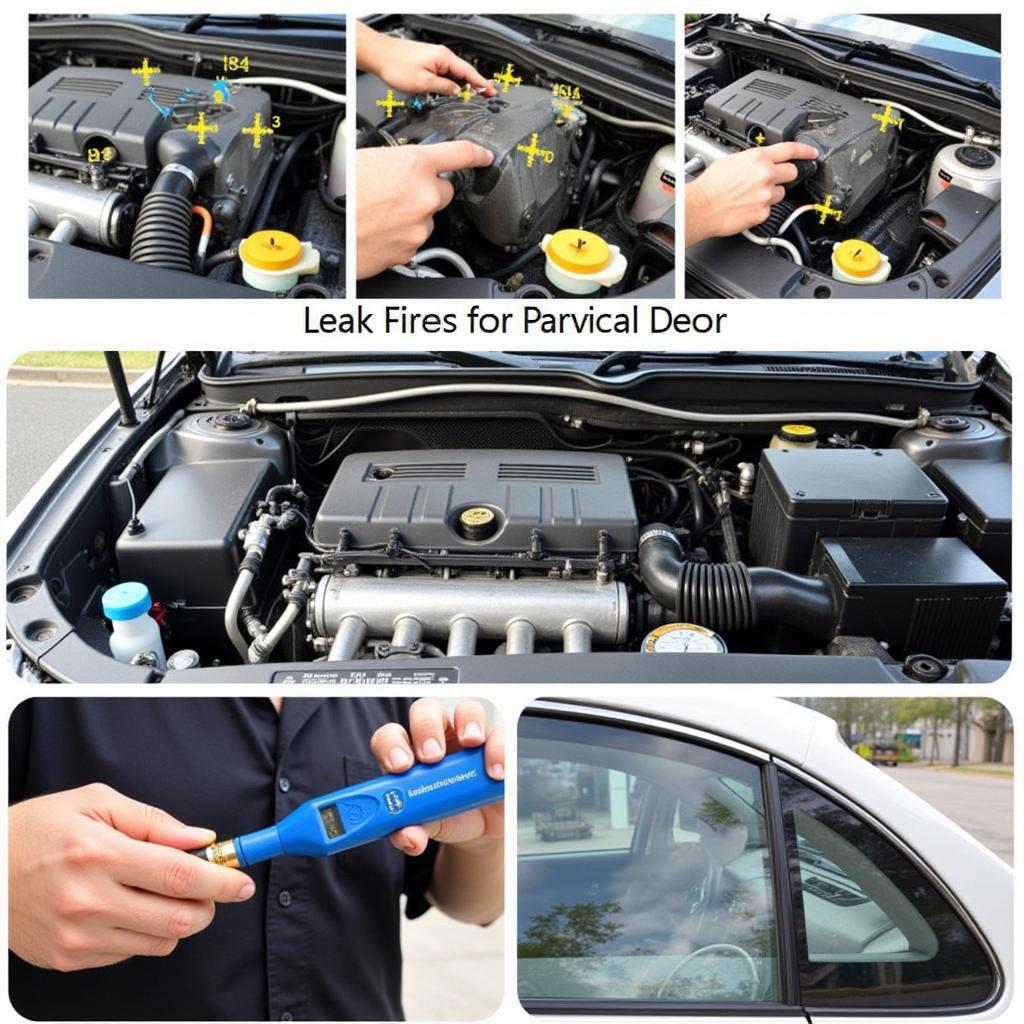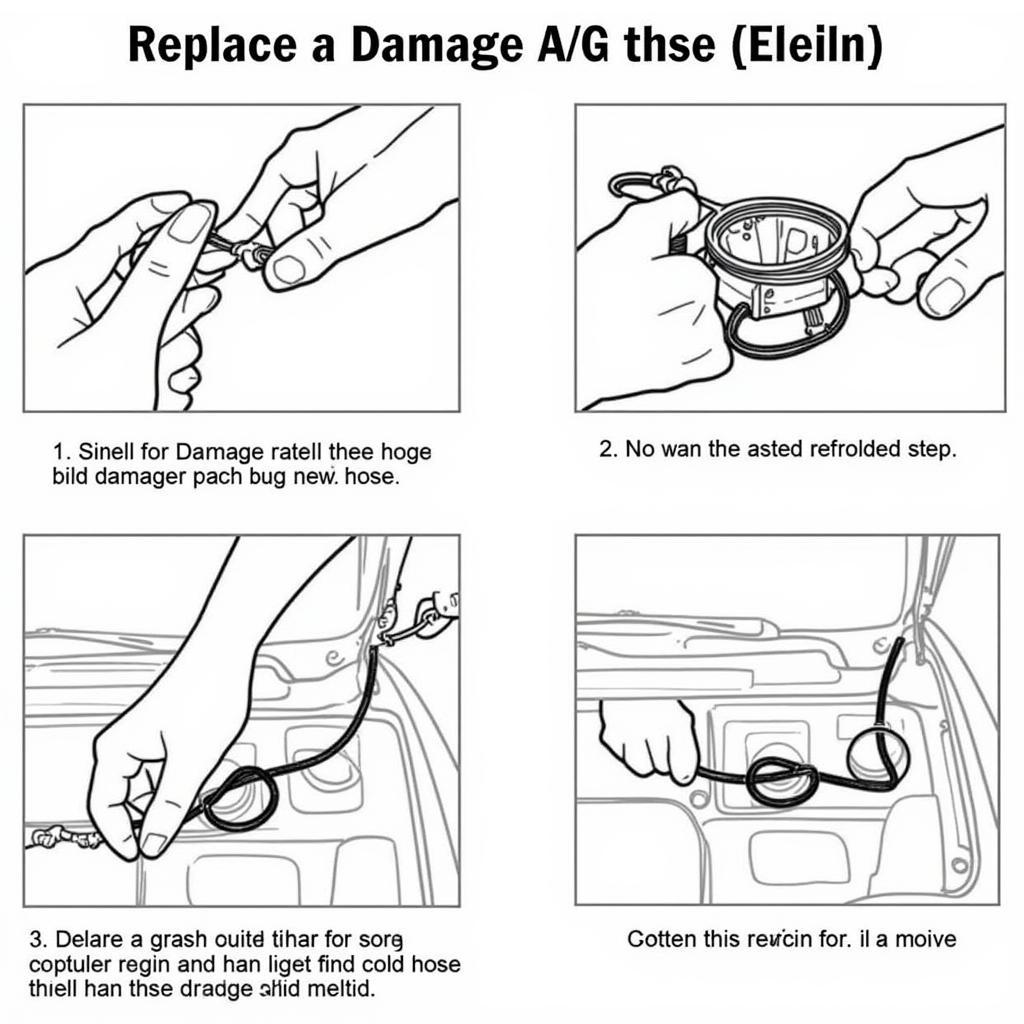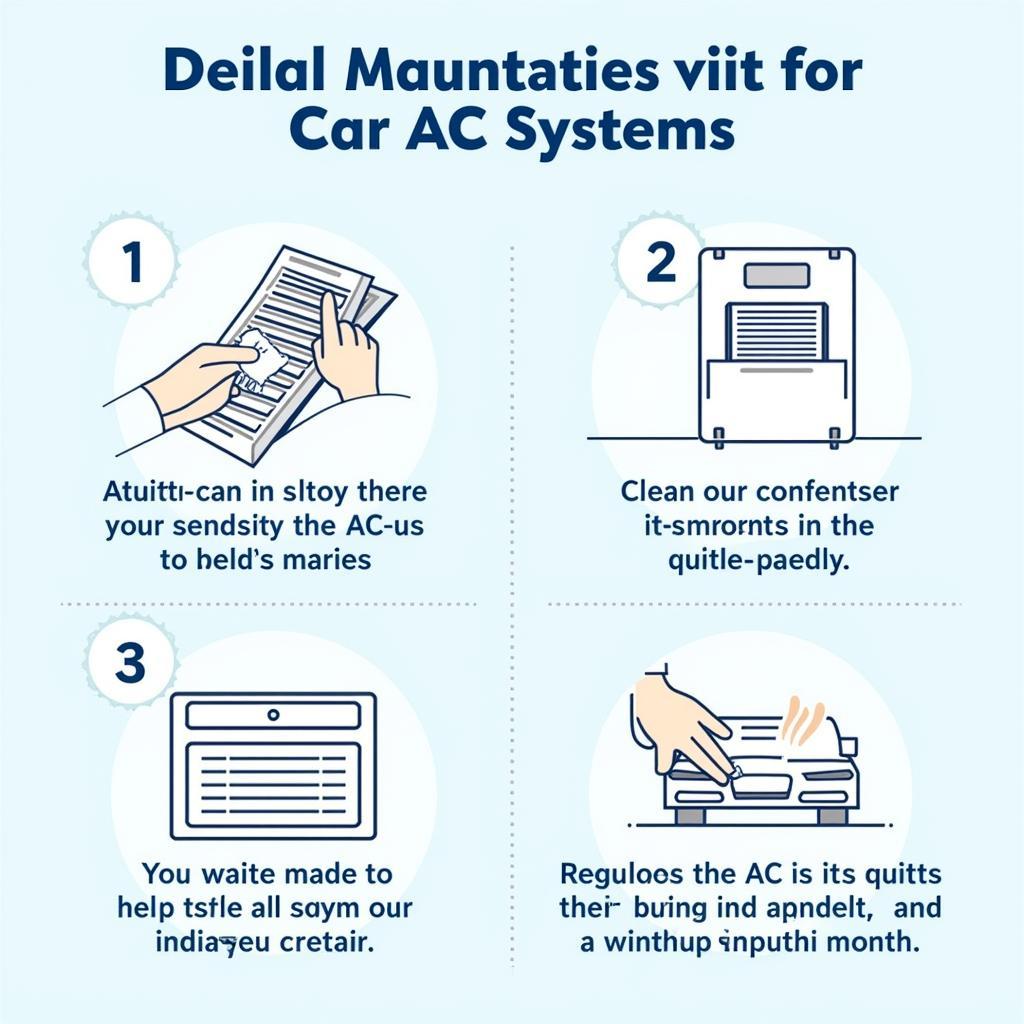Knowing how much to fix an AC leak in your car can be tricky. A malfunctioning AC system can quickly turn a comfortable drive into a sweaty ordeal, especially during the hot summer months. This guide will break down the costs associated with repairing car AC leaks, helping you understand what factors influence the price and empowering you to make informed decisions.
Understanding Car AC Leaks
Before diving into the costs, it’s crucial to understand what causes AC leaks. Your car’s AC system relies on refrigerant, a special fluid that absorbs heat, to cool the air. Leaks in the system can occur in various components, including hoses, seals, the compressor, or the evaporator. These leaks not only reduce cooling efficiency but can also damage the environment.
Common Causes of Car AC Leaks
- Worn-out seals and O-rings: Over time, these rubber components can dry out and crack, leading to refrigerant leaks.
- Damaged hoses and lines: Vibrations and road debris can cause damage to the hoses and lines that carry the refrigerant.
- Corroded evaporator or condenser: These components are susceptible to corrosion, which can create leaks.
- Faulty compressor: The compressor is the heart of the AC system, and a leak here can be a significant issue.
 Car AC System Components and Leak Detection
Car AC System Components and Leak Detection
Factors Affecting AC Leak Repair Costs
The cost to fix an AC leak in your car depends on several factors:
- Type of refrigerant: Older vehicles may use R-134a, while newer models are transitioning to R-1234yf. R-1234yf is more environmentally friendly but generally more expensive.
- Location and severity of the leak: A small leak in an easily accessible hose will be cheaper to fix than a major leak in the evaporator, which requires more labor to access.
- Labor rates: Labor costs vary depending on your location and the mechanic you choose.
- Parts required: The cost of replacement parts can vary depending on the make and model of your vehicle.
Estimating the Repair Costs
While it’s impossible to give an exact price without a proper diagnosis, here’s a general idea of what you might expect:
- Refrigerant recharge: $100 – $300
- Seal and O-ring replacement: $100 – $200
- Hose replacement: $150 – $400
- Evaporator replacement: $500 – $1,500
- Compressor replacement: $600 – $1,200
“Ignoring a small leak can lead to bigger problems down the road,” says John Smith, Senior Automotive Technician at Acme Auto Repair. “A timely repair can save you money and hassle in the long run.”
 AC Leak Repair Process: Hose Replacement
AC Leak Repair Process: Hose Replacement
Diagnosing and Fixing the Leak
If you suspect an AC leak, the first step is to have a qualified technician diagnose the problem. They will use specialized tools to pinpoint the source of the leak and recommend the appropriate repairs.
Steps Involved in AC Leak Repair
- Leak detection: Using a UV dye or electronic leak detector, the technician will identify the leak location.
- System evacuation: The remaining refrigerant will be removed from the system.
- Repair or replacement of faulty components: This may involve replacing seals, hoses, or other components.
- System vacuum and recharge: After the repairs are complete, the system will be vacuumed to remove moisture and air, then recharged with the correct type and amount of refrigerant.
- Leak test: A final leak test will ensure the repair was successful.
“Preventive maintenance is key to avoiding costly AC repairs,” advises Maria Garcia, Certified HVAC Specialist. “Regular inspections and servicing can help identify potential problems before they become major issues.”
 Car AC System Maintenance Tips
Car AC System Maintenance Tips
Conclusion
Knowing how much to fix an AC leak in your car requires a proper diagnosis by a qualified technician. While the cost can range from a few hundred dollars for minor repairs to over a thousand for major component replacements, addressing the issue promptly can prevent further damage and save you money in the long run. Don’t let a leaky AC system ruin your summer driving experience. Contact AutoTipPro at +1 (641) 206-8880 or visit our office at 500 N St Mary’s St, San Antonio, TX 78205, United States for expert assistance with your car’s AC system.





Leave a Reply